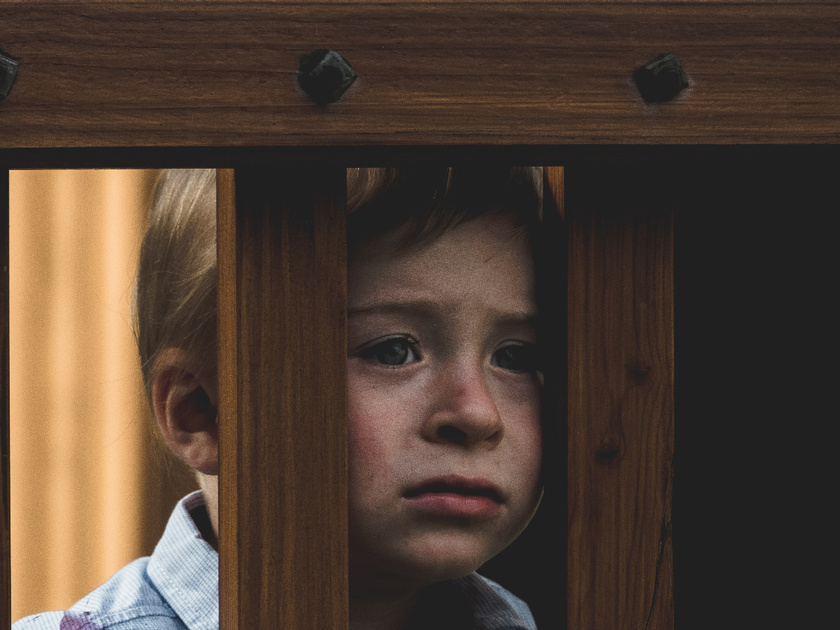
Dear Dr. T.,
It hit me last week when I was at a family gathering. What I saw is that the cousins ate, played games, chatted up the adults, and got hyper. But here’s what I also saw: my pre-teen children clung to me, my little ones kvetched about the food, and two children begged to go home — now!
What strikes me is that my children are just not happy. Whether at home, or school, they see the negative parts, are reluctant to join in, and generally appear moody and dissatisfied. This is really upsetting as I have always aspired to a happy home. I really do try to make things work out for my kids, but their constant moodiness/sullenness is getting to me.
Tell me. Were they born this way? Did I make them this way? And, most importantly, how can I help them become more happy and pleasant to be around?
By the way, we are not poor or sick. We are two committed parents with a fairly typical lifestyle. Our children do okay in school, don’t misbehave – but are chronically unhappy. Honestly, I have thought about this and there is nothing major that I can put my finger on. But, I am starting to worry.
Dr. T.,
I applaud your honesty and your desire to improve the atmosphere in your family. There are many reasons for what you describe. Tolstoy said, “All happy families are alike, but each unhappy family is unhappy in its own way.”
Based on your letter, I will assume that none of the really obvious stuff — depression, abuse, death — is going on here. But we do know that lots of smaller things can have the effect of a single, larger factor. I know that you want to see some change here, but there is no quick fix for mood and attitude.
The first step is to understand what is going on. So, let me suggest some possibilities:
-Physical causes.
Children need a healthful diet, exercise, and adequate sleep to function well.
A permissive, haphazard set-up does not bode well for the child.
-Parents don’t get along.
Even if they don't fight in the open, children feel the tension.
-Sibling rivalry.
Children see favoritism or compare themselves unfavorably with other siblings.
-Lack of attention to emotional needs.
Children may be dressed beautifully, have all the right stuff, but suffer from lack of empathy and a listening ear.
-Stress in the home.
Stress wreaks havoc, makes the most pleasant of activities tension-ridden and uncomfortable.
-Criticism is poison.
It contaminates the atmosphere and drains the child of joy.
While any of these – or some other factors – may be at play here, I want to suggest some other possible cause: the role of the mother. It is the mother who sets the tone in the home and models attitudes, reactions and feeling states. When the mother is generally positive and optimistic, her children emulate that. But the overburdened mother who is negative, pessimistic, and stressed out elicits an entirely different reaction from her children.
I say this not to lay blame at the feet of the mother, but rather to make a bid for support for the mother. Parenting is hard work – especially in today’s world where most mothers work, maintain a home, and take care of the children. Though many mothers are resilient, super achievers, or cheerful by nature, after a stress-filled, demanding day, many a competent mother cannot muster up the emotional energy needed to project happiness and satisfaction. It is particularly difficult when a mother has not had her emotional needs met when she was a child. You can’t give when you didn’t get.
For a mother in today’s hectic world to cope with satisfaction and joy, she needs support from the people around her, most particularly, her spouse. She needs acknowledgment for the complexity of her role and concrete assistance in completing the myriad tasks — from shopping to doctor appointments, from cooking to child care. Whether it is hired help or a spouse pitching in. one person cannot do it all. A mother also needs verbal and emotional encouragement – not criticism and unrealistic expectations — from the people around her: family, friends and society.
Aside from the very crucial support of others, it’s the mother’s job to work on herself to improve her situation and reduce the stress and tension which is the enemy of her happiness — and that of her children’s. Whether it is hiring more help, or farming out tasks to siblings, tutors and the like, it is essential that mom realized that she can’t do it all — not without a cost to her mood. Mom has to make her basic needs such as eating, sleeping, downtime/relaxation/ me-time, non-negotiable so that she can serve with grace and joy. Many a mom has found satisfaction in developing realistic expectations of herself, finding an interest, joining a group, or even pursuing therapy.
In short, to maintain sanity and peace of mind, mothers would do well to heed the airline’s safety advice: put on your mask before putting on that of your children.
Photo by Tadeusz Lakota on Unsplash
 Previous
Previous

